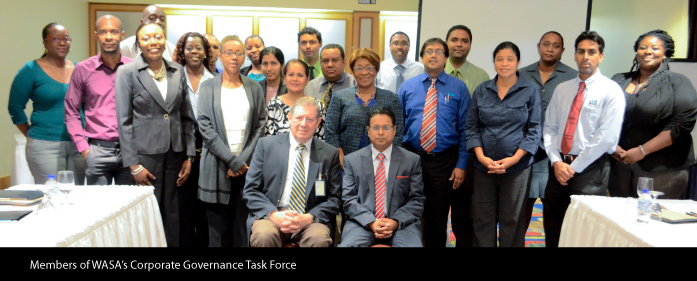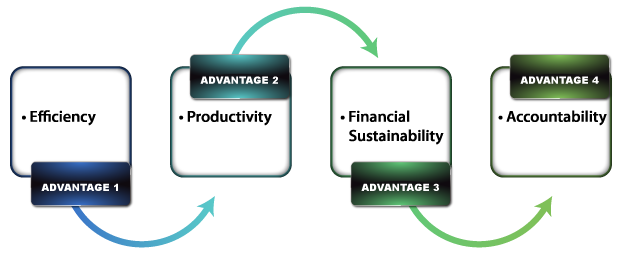|
The Government of the Republic of Trinidad and Tobago and the Inter-American Development Bank entered into an arrangement that would open the doors for the Water and Sewerage Authority to transform the organisation through institutional strengthening. In accordance with the Loan Contract the Authority has succeeded in obtaining the funding to undertake infrastructural works under the Multi-Phase Rehabilitation Programme Phase I. The Authority is required among other things to implement institutional strengthening activities to sustain the turnaround and transformation of the Authority.
Within the arrangement between the GORTT and the IDB; the bank has invested strategically in the utility sector to ensure that citizens are the beneficiaries of improvements in service quality and standards – which is aligned to the core corporate goal of Improving Customer Care and Satisfaction.
One of the specific objectives of the Phase I is the Corporatisation Framework under the umbrella of institutional strengthening of the Water and Sewerage Authority (WASA). This objective considers the approval of the Corporatisation Framework by the Board of Commissioners of WASA in an effort to achieve the transformation of the Authority into a financially stable and self-sufficient organisation.
CG TASKFORCE
The Corporate Governance Task Force was the team established to drive the corporatisation initiative that will see the transformation of the Authority.

WHAT IS CORPORATISATION?
Corporatisation is “The process of transformation of a Government owned entity such as a public utility into a publicly owned corporation with its own corporate identity”.
KEY OBJECTIVES OF CORPORATISATION
The model of a corporatised entity and when properly implemented accompanied by a sound ownership policy, would see key objectives being accomplished including: the establishment of a distinct legal identity for the corporatised entity “WASA”, under which the GORTT’s role is clearly defined; the implementation of private sector commercial orientation; and managerial independence with required systems of accountability. The two (2) objectives of this initiative are:

WHY CORPORATISE?
The guiding principle of this transformation is to attain the advantages of a private sector company including management systems, efficiency, productivity and financial sustainability, while being answerable to the owners i.e. the GORTT.

KEY ACTIVITIES INVOLVED IN CORPORATISATION
The activities will focus on institutional strengthening and the implementation of strategic Corporate Governance actions developed between June and July 2012. They include activities related to:
- Transparency and Disclosure
- Auditing
- Internal Control
- New Corporate Governance model
- New Legal Framework.
BENEFITS OF CORPORATISATION
As a corporatised utility, the Authority and its stakeholders can expect the following key benefits.
- Stable water supply and wastewater services and excellent goodwill among customers.
- Enjoyment of the advantages of a company managed and operated with private sector best practices with the expected efficiency, productivity and financial sustainability.
- To be part of an organisation that is performance driven.
- Large-scale investment in infrastructural development according to a long-term plan that is aligned to strategic objectives
- Ongoing communication to increase stakeholder awareness and buy-in for the transformation initiatives under the Corporate Governance Action Plan (CGAP).
- Reduction of the negative equity position and improved system of value creation thereby achieving financial sustainability and self-sufficiency.
- An independent corporate status while retaining accountability to its stakeholders, including the GORTT.
- Financial autonomy achieved through independently determined tariffs and a sound management system.
- Incentives when the organisation achieves financial viability
|